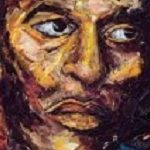
This year marks the 50th anniversary of the publication of Frantz Fanon’s The Wretched of the Earth. Fatin Abbas argues that the uprisings that have erupted across north Africa and the Middle East in recent months attest to the visionary power of Fanon’s work and to its enduring relevance.
Fifty years ago, in 1961, a young Martinican psychiatrist by the name of Frantz Fanon published The Wretched of the Earth, a political tract that, in the years to follow, would become the handbook of revolutionaries everywhere, from Ché Guevara in South America to Steve Biko in South Africa. At the time of writing the book, Fanon was stationed as a psychiatrist in Algeria, a country that was then in the grip of a protracted and bloody revolution. In 1954 the Algerian people had risen en masse against French colonizers who had ruled them brutally for more than a century. The Algerian War for Independence lasted eight years, ending with the expulsion of the French in 1962. It came to be known as the “War of a Million Martyrs” because of the countless Algerians who died in the struggle.
The popular uprisings that have swept through north Africa and the Middle East in recent months – erupting in Tunisia and spreading to Egypt, Libya and Bahrain among other places – not only recall those heroic struggles for independence that swept through Algeria and the rest of the colonized world in the 1950s and 60s, they also attest to the visionary power of Fanon’s Wretched of the Earth. At the time of its publication the book was marketed as “[a] negro psychoanalyst’s study of colonialism and racism in the world today,” ↑ but in fact Fanon’s work was much more than that. While Fanon devoted part of the book to theorizing the corrosive effects of colonial racism and the most effective ways by which the colonized could combat their oppressors, much of it in fact served as a kind of cautionary tract, warning against the corruption of the regimes that – under the mantles of « nationalism, » « Pan-Africanism » and « Pan-Arabism, » – would come to power after independence.
One object of Fanon’s scathing critique was the post-independence dictator-leader bloated with his own power. Fanon repeatedly emphasized what he called the “detrimental role of the leader,” warning that “in certain regions the party is organized like a gang whose toughest member takes over leadership.” In his characteristically wry style, he cautioned against the excesses of power : “Leader comes from the English verb ‘to lead,’ meaning ‘to drive’ in French. The driver of people no longer exists today. People are no longer a herd and do not need to be driven. If the leader drives me I want him to know that at the same time I am driving him.” Certainly, the egotistical, delusional, and murderous performances of dictators from Hosni Mubarak to Muammar Gaddafi in recent months lend credence to Fanon’s early warning that “the nation should not be run by a big boss.”
Fanon also foresaw the role that western powers would play in propping up corrupt regimes, predicting that these powers would continue to safeguard their interests in the Third World by cultivating clientelistic relationships with local proxies. In doing so he thought that they would curtail the growth of genuine democracy in those regions, perpetuating the subjugation of the people who lived there. Here he was right again. It is no coincidence that, with the exception of Gaddafi (who is also the only dictator against whom the west has intervened thus far), the regimes that have been the target of protests in recent months have invariably been close allies of western powers, principally America.
Fanon was ultimately most insightful in recognizing the critical role that the common people can play in overcoming the conditions of their oppression. He wrote, “[t]he more the people understand, the more vigilant they become, the more they realize in fact that everything depends on them and that their salvation lies in their solidarity. » Fanon’s faith in the masses, in their capacity to fight their own oppression, was derived from his experience in Algeria, where he had witnessed first-hand the way in which ordinary people mobilized to fight the French. His descriptions of the Algerian masses then uncannily foreshadow the images of the Tunisian, the Egyptian, the Libyan masses now : « The Algerian people, that starved…mass of men and women….have resisted the tanks and the planes, the napalm and the psychological warfare, but above all, the corruption and the brainwashing, the traitors and the ‘national’ armies. »
A black Martinican educated in France who, by the end of his life, identified as Algerian (he often refers to himself as an Algerian in The Wretched of the Earth), Fanon was the epitome of the “cosmopolitan intellectual” long before the term came into vogue. But Fanon not only theorized revolution, he lived it. He threw in his lot with the people he wrote about, becoming a revolutionary and joining the Front de Libération Nationale (FLN), the Algerian resistance movement that spearheaded the revolt against the French. Sadly, when the leaders of the FLN took over power after independence in 1962 they did not heed Fanon’s prescient warnings in The Wretched of the Earth, and the new nation was plunged into turmoil and civil war. Today Algeria is one of the many countries across north Africa where the people are again on the brink of revolting ↑ .
Fanon did not live to see the Algerians liberated from the French and died the same year that The Wretched of the Earth was published, in 1961, at the age of 36. Though his life was short, his voice was vast. Fifty years on, he continues to be a spokesman for today’s wretched of the earth.

